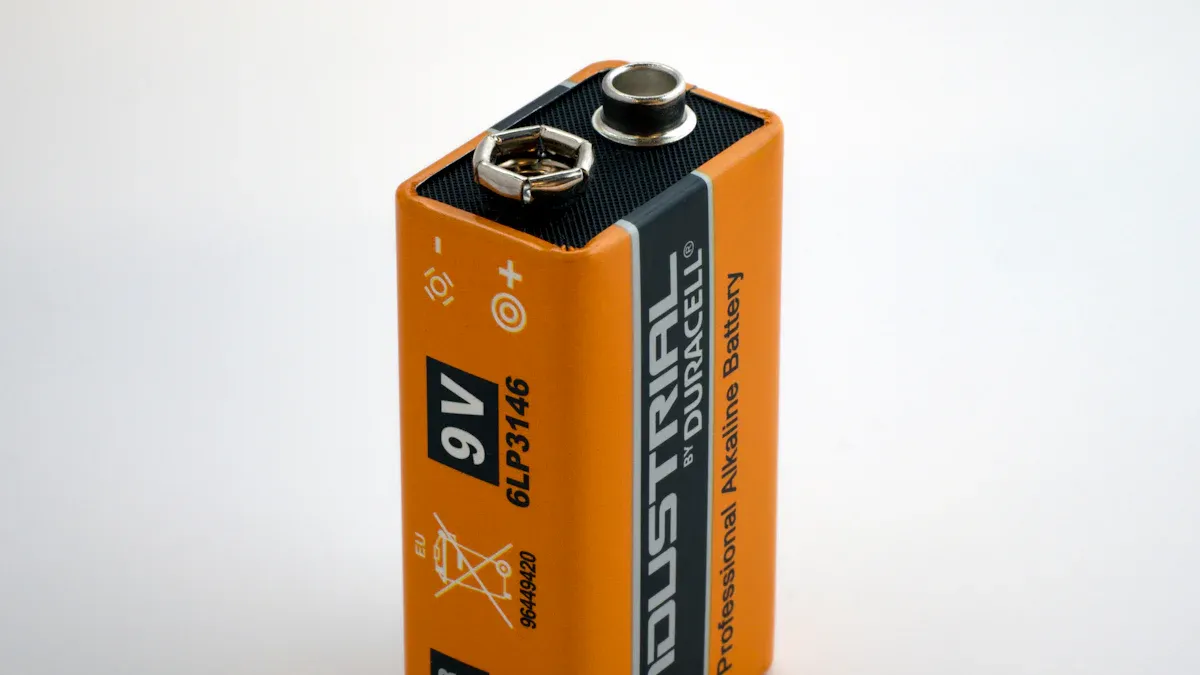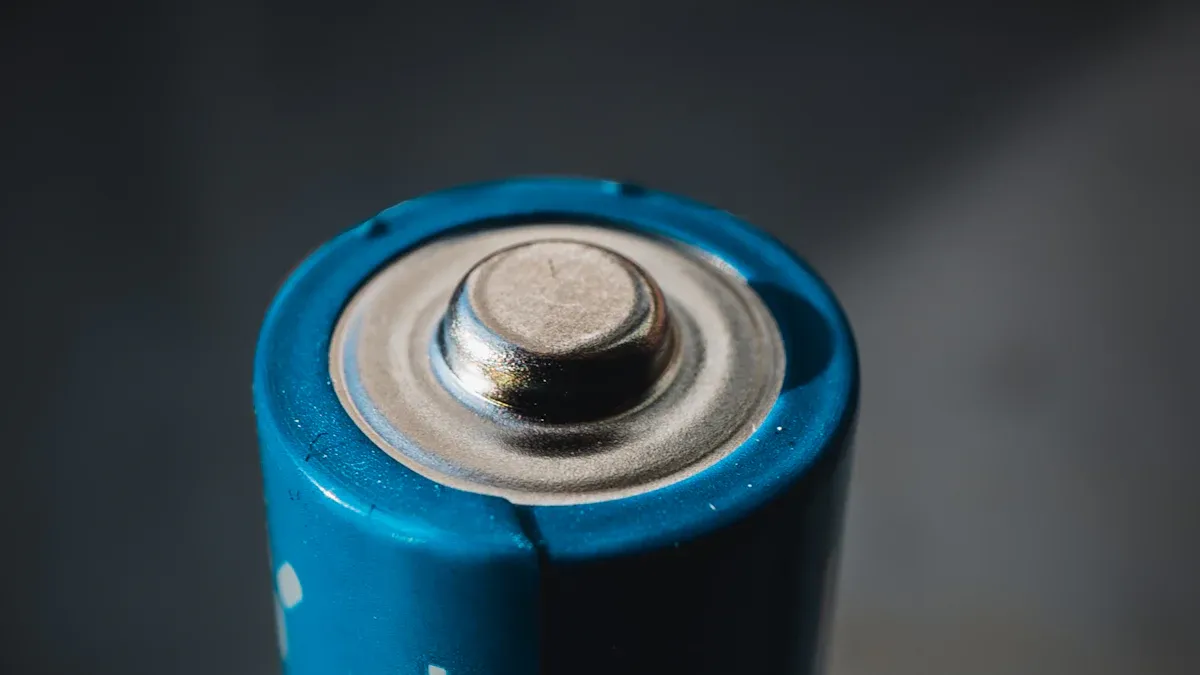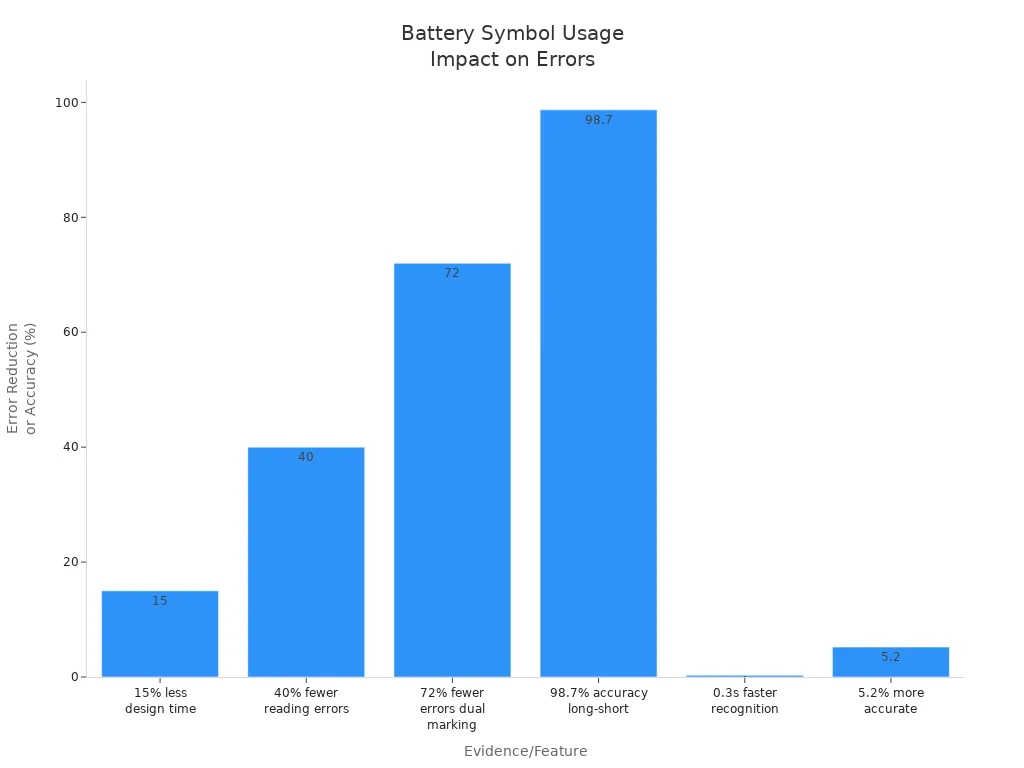
Imagine you make a circuit but get the battery symbolism wrong. This mistake can cause safety problems or expensive rule breaks. You need to know three main things: battery symbolism shows voltage and polarity, tells the battery type, and follows strict rules.
kurui BMS uses clear battery symbolism. This helps you avoid mistakes and follow safety rules.
Standard | Why It Matters |
|---|---|
UL | Makes sure batteries are safe and work well from start to finish. |
CE | Proves safety and good performance for other countries. |
If you ignore these rules, you can get fined, face legal issues, and hurt your reputation.
Battery symbols tell you about voltage and polarity. Use them the right way to stop errors in your designs.
Countries have their own rules for battery symbols. Always look up the rules for your project to keep it safe.
Clear battery symbols help people read your circuit diagrams. Put them in the right spot so others get your design fast.
The right symbols stop dangerous mistakes like reverse polarity. Always check your connections before you finish your design.

Battery symbolism is like a special language for engineers and designers. These symbols show how batteries work in a circuit. Using the correct symbols helps others understand your design fast. This makes mistakes less likely and keeps people safe.
A battery symbol looks like two lines. One line is long, and one is short. The long line means the positive terminal. The short line means the negative terminal. Bigger batteries can have more lines. These lines help you see voltage and polarity quickly.
Standard icons make your job simpler. They follow rules from groups like IEC, ISO, and UN. Here is a table with the most common standards:
Standard | Description |
|---|---|
IEC 60417 | Shows symbols for electrical equipment. |
ISO 7010 | Has safety symbols for workplaces and factories. |
UN 3480 / UN 3481 | Gives transport labels for lithium-ion batteries. |
ANSI Y32 / IEEE 315 | Sets symbols for electrical diagrams in North America. |
RoHS / WEEE | European rules for recycling and safe disposal symbols. |
kurui BMS uses these clear symbols in its Battery Management Systems. This helps you follow safety and compliance rules in every project.
Battery symbolism can change by country or project. Some places need symbols that last through heat, acid, or sunlight. Here is how rules are different around the world:
Region | Key Durability Requirements | Common Regulations & Standards Referenced |
|---|---|---|
Europe | Must not fade, must last through acid, UV, oil, heat, or rubbing | EU 2023/1542, EN 50342, IEC 62902 |
Asia | Must resist acid, sunlight, use GHS symbols, and meet size rules | ISO 28219, IEC standards |
Americas | Must be weatherproof, permanent, and resist chemicals | UL 969, CSA C22.2 No.015 |
Africa | Labels must not fade, must last; many goods are imported | ISO/IEC references, local EPR frameworks |
Australia | Must resist sunlight, heat, chemicals; often laminated or embossed | AS/NZS 60079, ISO 3864-2 |
Using the right battery symbolism makes your designs easy for engineers everywhere to read. This helps teams from different companies work together. kurui BMS follows these standards, so your projects stay safe and clear.
Tip: Always check which standard your project needs before you start your design.

It is important to know how much power a battery gives. Battery symbols help you see this quickly. In most diagrams, the number of lines in the symbol shows the number of cells. More cells mean the battery has more voltage. One pair of long and short lines means one cell. If you see more pairs, it means the battery has more cells and higher voltage.
Designers use different symbols to show voltage and polarity. Here is a simple guide:
Battery Symbol Representation | Description |
|---|---|
Circle with '+' and '-' | Shows DC voltage sources with clear polarity marks. |
Alternating long and short lines | Classic battery symbol, shows positive and negative ends. |
Multiple pairs of lines | Means a multi-cell battery, which gives higher voltage. |
Using the right symbol helps others understand your design. This makes it easier to check if the voltage is correct for your project. kurui BMS uses these standard symbols so your schematics are clear and correct.
You must connect batteries the right way every time. Battery symbols use a long line for the positive terminal. The short line stands for the negative terminal. Many symbols also add a '+' or '-' sign to make it even clearer.
The '+' shows the positive terminal.
The '-' shows the negative terminal.
Most consumer electronics use center positive polarity, which is marked by a special symbol.
If you mix up the terminals, your device may not work. You could even damage the electronics or cause a safety problem. Some people call this "letting out the magic smoke." Always check the symbol before you connect anything.
Tip: Using the right polarity keeps your circuit safe and working. Battery symbolism helps you avoid expensive mistakes.
You want your circuit diagrams to be easy to read. Put battery symbols near the power source in your drawing. Make sure the symbol faces the right way. The long line should show the positive side. The short line should show the negative side. Add a '+' or '-' sign if you want it to be even clearer.
If you use both lines and signs, your diagram is easier to understand. Studies show dual marking helps people make fewer mistakes. It saves time and helps you avoid errors. Here is a table that shows how good battery symbol placement helps:
Evidence Description | Impact on Design Errors |
|---|---|
Circuit design is faster (about 15% less time) | Fewer mistakes happen |
Technical documents are easier to read | People make fewer errors |
Diagram reading mistakes drop by 40% | Designs have fewer problems |
Dual marking cuts errors by 72% | Very important for risky jobs |
Long-short design helps people spot polarity | 98.7% accuracy without words |
People recognize symbols 0.3s faster and 5.2% better | Diagrams are clearer |

Tip: Always use clear battery symbols in your drawings. This helps your team find problems before they happen.
kurui BMS works with many battery types, like lithium-ion. You can trust their symbols to follow world rules and keep your designs safe.
Putting battery symbols in the wrong place can cause big problems. If you mix up the polarity, your device might get too hot or even catch fire. Here is a table that shows what can go wrong:
Safety Concern | Description |
|---|---|
Reverse Polarity | Happens when the battery is hooked up wrong, which can be dangerous. |
Overheating | Wrong connections can make batteries get too hot. |
Explosions or Fires | Bad connections can cause fires or explosions. |
You should always check your symbols before you finish your drawing. Clear battery symbols help everyone understand your design. Using the right symbols makes your work safer and easier to share.
You now know battery symbolism helps make designs safer and more accurate. Using special symbol libraries keeps your drawings neat and easy to check. Parametric symbols help your diagrams look right every time. Kurui BMS lets you watch your batteries in real time. It also has strong safety tools, so batteries last longer and work better.
Software Feature | Symbol Capability | Design Benefit |
|---|---|---|
Symbol Libraries | Standardized component symbols | Consistency and compliance |
Parametric Symbols | Automatically sized components | Accurate representation |
Database Integration | Real-time component data | Design validation and procurement accuracy |
Look over your drawings for clear battery symbols. Pick kurui BMS to make every project safer and work better.
The battery symbol shows where power comes from in your circuit. The long line means positive. The short line means negative. You can see how to connect your battery by looking at this symbol.
Different countries use their own rules for symbols. Some symbols must last through heat or chemicals. Always check the standard for your project. This keeps your design safe and easy to read.
Always look for the '+' and '-' signs on the symbol. The long line is positive. The short line is negative. Double-check your connections before you finish your design.
Yes, kurui BMS works with many battery chemistries, including lithium-ion. You can use it for different projects and trust the symbols to match world standards.
Using the wrong symbol can confuse others. Your device might not work or could become unsafe. Always use the correct symbol to keep your project safe and clear.